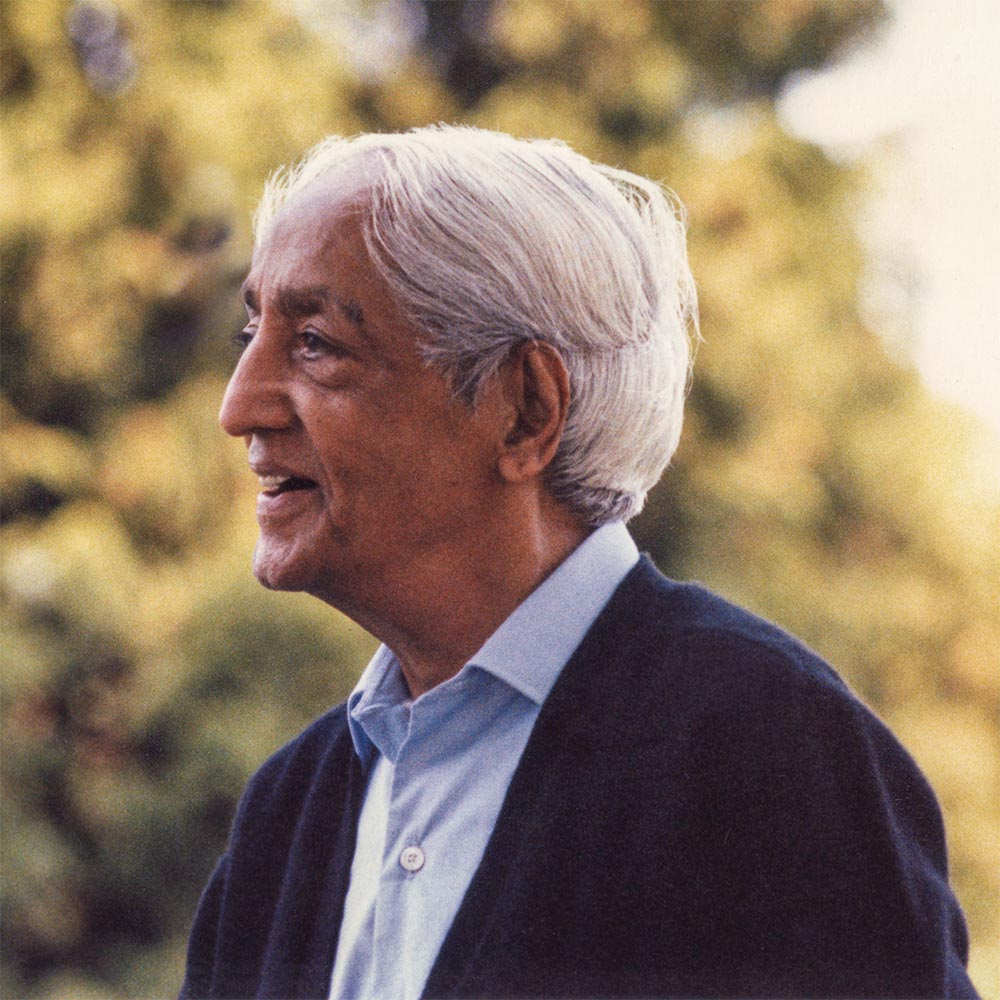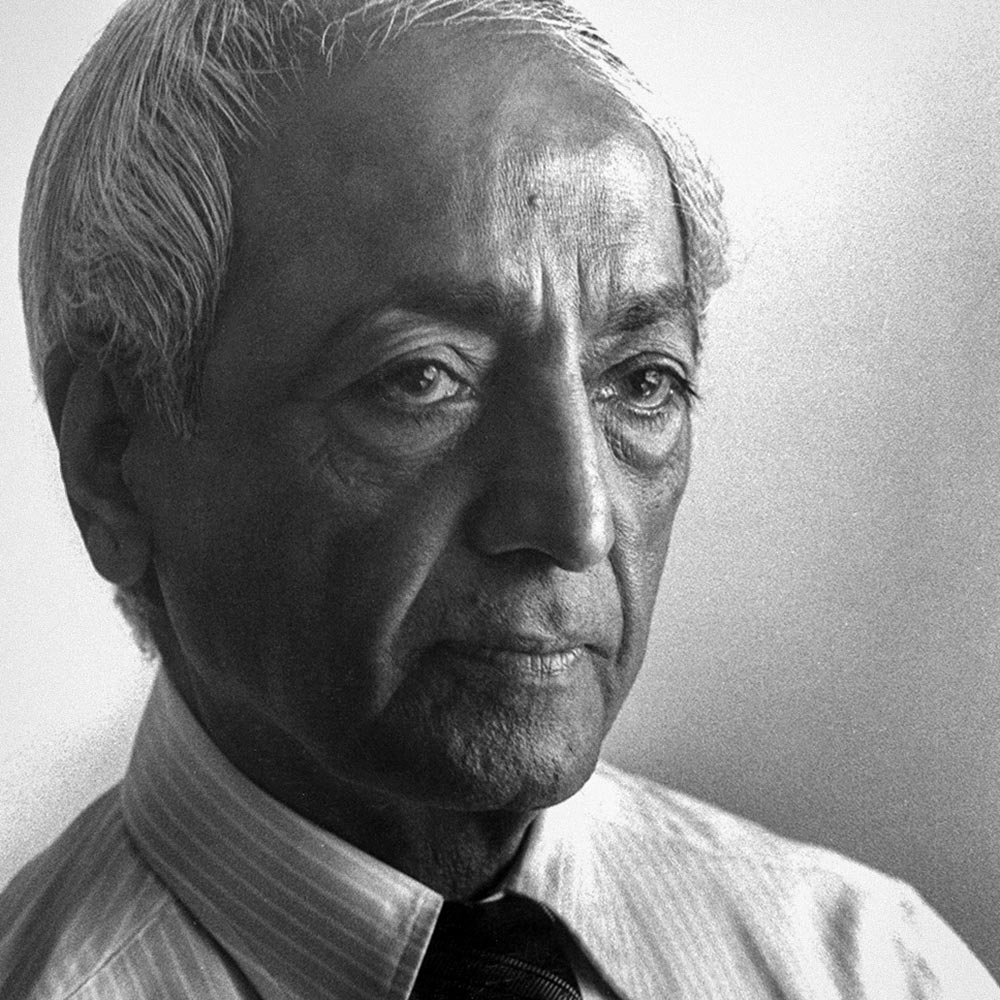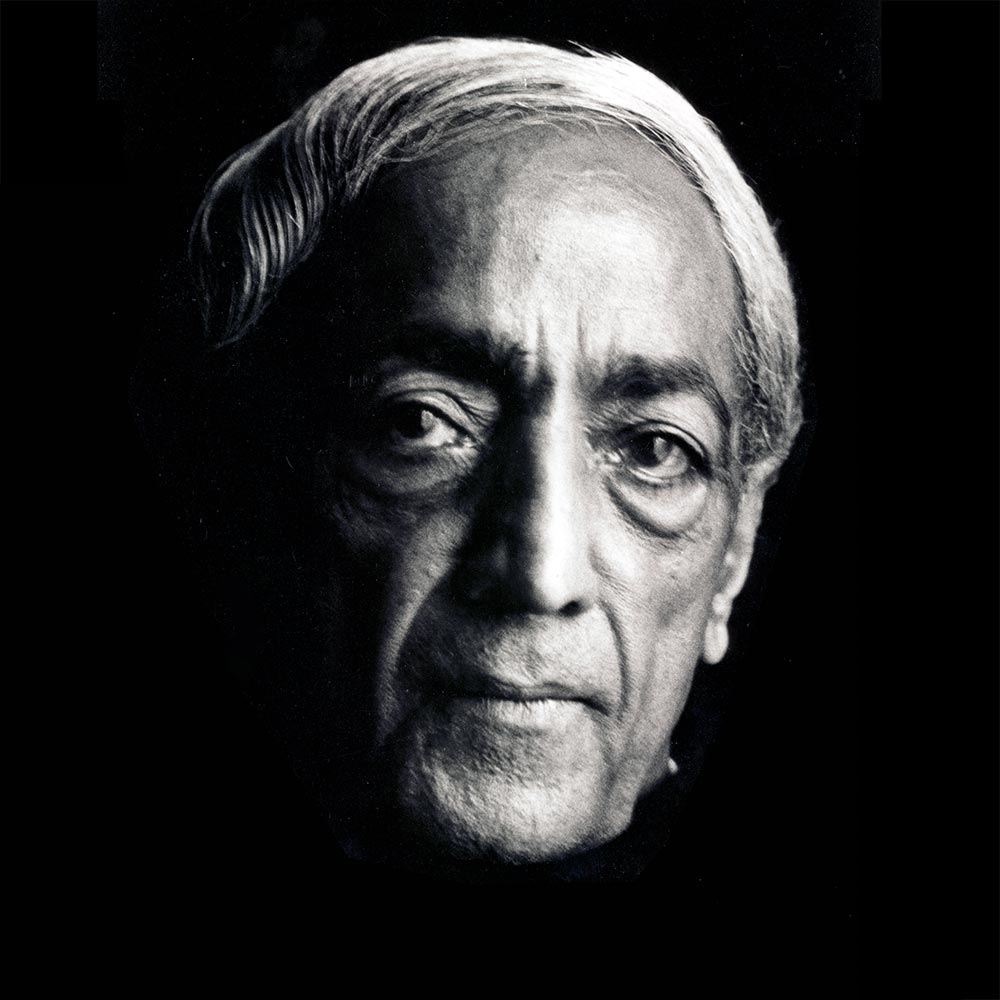The self is put together by thought. Thought is not yours or mine; thinking is not individual thinking. Thinking is shared by all human beings.
Read More
The self is self-enclosing: its activities, however noble, are separative and isolating.
Krishnamurti, The First and Last Freedom
Read More
The activities of the self are frighteningly monotonous. The self is a bore; it is intrinsically enervating, pointless and futile.
Krishnamurti, Commentaries on Living 1
Read More
Problems will always exist where the activities of the self are dominant.
Krishnamurti, Commentaries on Living 1
Read More
Relationship is a mirror in which the self and all its activities can be seen.
Krishnamurti, Education and the Significance of Life
Read More
Observe the self in operation, learn about it, watch it, be aware of it. Do not try to destroy it, get rid of it or change it – just watch it, without any choice or distortion. Out of that watching and learning, the self disappears.
Krishnamurti, Beyond Violence
Read More
Self-continuity is decay; in it there is no transforming element nor the breath of the new. The self must end for the new to be.
Krishnamurti, Commentaries on Living 1
Read More
A materialistic humanity will destroy itself unless the self is wholly abandoned.
Read More
The abandonment of the self is not an act of will, for the will is the self. Any movement of the self, in any direction, is still within the field of time and sorrow.
Read More
We are afraid of the total destruction of the known, the ground of the self, the ‘me’ and the ‘mine’.
Read More
Is the ‘you’, the self, separate from the rest of mankind? You have a name, a separate physical organism, certain tendencies different from another’s, and perhaps a talent, but does that make you an individual?
Read More
We have many images, and not being able to be free of them the mind unfortunately invents a super-image, the ‘higher self’.
Krishnamurti, The Awakening of Intelligence
Read More
The monk who has renounced the ways of the world may wander the face of the world or be locked away in a monastery but has not left the unending movement of the self.
Krishnamurti, The Whole Movement of Life Is Learning>
Read More
Wisdom comes with the abnegation of the self.
Krishnamurti, Education and the Significance of Life
Read More
Only when the self is not is there creativeness: that state of being in which alone there can be reality, the creator of all things.
Krishnamurti, The First and Last Freedom
Read More
These quotes only touch on the many subjects Krishnamurti inquired into during his lifetime. His timeless and universal teachings can be explored using the Index of Topics where you will find texts, audio and video related on many themes. Another option is to browse our selection of curated articles or more short quotes. Krishnamurti’s reply when asked what lies at the heart of his teachings can be found here. Many Krishnamurti books are available, a selection of which can be explored here. To find out more about Krishnamurti’s life, please see our introduction and the biography. We also host a weekly podcast, and offer free downloads. Please visit our YouTube channel for hundreds of specially selected shorter clips. Below, you can learn more about Krishnamurti and our charity which he founded in 1968.

Who Was Krishnamurti?
J. Krishnamurti (1895-1986) is widely regarded as one of the greatest thinkers and religious teachers of all time. He spoke throughout the world to large audiences and to individuals, including writers, scientists, philosophers and educators, about the need for a radical change in mankind. Referring to himself, Krishnamurti said:
He is acting as a mirror for you to look into. That mirror is not an authority. It has no authority, it’s just a mirror. And when you see it clearly, understand what you see in that mirror, then throw it away, break it up.
Krishnamurti was concerned with all humanity and held no nationality or belief and belonged to no particular group or culture. In the latter part of his life, along with continuing to give public talks, he travelled mainly between the schools he had founded in India, Britain and the United States, which educate for the total understanding of man and the art of living. He stressed that only this profound understanding can create a new generation that will live in peace.
Krishnamurti reminded his listeners again and again that we are all human beings first and not Hindus, Muslims or Christians, that we are like the rest of humanity and are not different from one another. He asked that we tread lightly on this earth without destroying ourselves or the environment. He communicated to his listeners a deep sense of respect for nature. His teachings transcend man-made belief systems, nationalistic sentiment and sectarianism. At the same time, they give new meaning and direction to mankind’s search for truth. His teaching is timeless, universal and increasingly relevant to the modern age.
I am nobody. It is as simple as that. I am nobody. But what is important is who you are, what you are.
Krishnamurti
Krishnamurti spoke not as a guru but as a friend. His talks and discussions are based not on tradition-based knowledge but on his own insights into the human mind and his vision of the sacred, so he always communicated a sense of freshness and directness, although the essence of his message remained unchanged over the years. When Krishnamurti addressed large audiences, people felt that he was talking to each of them personally, addressing their own particular problem. In his private interviews, he was a compassionate teacher, listening attentively to those who came to him in sorrow, and encouraging them to heal themselves through their own understanding. Religious scholars found that his words threw new light on traditional concepts. Krishnamurti took on the challenge of modern scientists and psychologists and went with them step by step, discussing their theories and sometimes enabling them to discern the limitations of their theories.
Krishnamurti left a large body of literature in the form of public talks, writings, discussions with teachers and students, scientists, psychologists and religious figures, conversations with individuals, television and radio interviews, and letters. Many of these have been published as books, in over 60 languages, along with hundreds of audio and video recordings.

The Krishnamurti Foundation
Established in 1968 as a registered charity, and located at The Krishnamurti Centre, Krishnamurti Foundation Trust exists to preserve and make available Krishnamurti’s teachings.
The Foundation serves a global audience by providing worldwide free access to Krishnamurti videos, audio and texts to those who may be interested in pursuing an understanding of Krishnamurti’s work in their own lives.
In describing his intentions for the Foundations, Krishnamurti said:
The Foundations will see to it that these teachings are kept whole, are not distorted, are not made corrupt.

